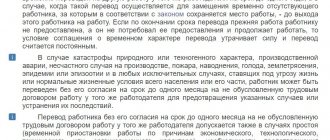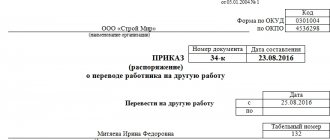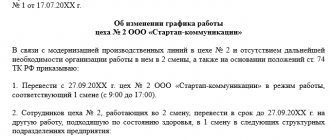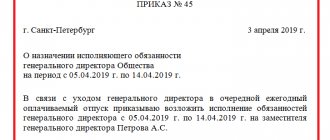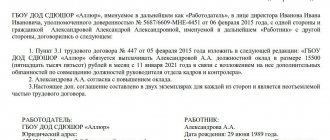Remote work or remote work, also popularly called “remote work”. More recently, no one really knew what it was, but now, as of January 1, 2021, this term is enshrined in law in the Labor Code of the Russian Federation. Now in our country, almost everyone - from students to retirees - knows what “remote work” is.
Let's take a closer look at the changes that are officially enshrined in the Federal Law of December 8, 2020 No. 407-FZ “On Amendments to the Labor Code of the Russian Federation in terms of regulating remote (remote) work and the temporary transfer of an employee to remote (remote) work at the initiative of the employer in exceptional cases "
Now the transfer of employees to remote work is subject to clear rules, requires the execution of new documents and amendments to existing regulations at the enterprise. The State Labor Inspectorate vigilantly monitors the implementation of the new rules, gets acquainted with employee employment contracts, additional agreements to them, other regulations and internal labor regulations, including those regarding the registration of remote workers. The absence or incorrect execution of documents establishing the transfer of an employee to remote work is a violation and may result in a fine.
We propose to consider the scheme of such a translation step by step and attach approximate samples of the required documents, drawn up taking into account all the new requirements.
We are talking about work that is performed outside the employer’s location, outside a stationary workplace, directly or indirectly under the control of the employer. At the same time, the employer and employee must interact with each other using “public information and telecommunication networks, including the Internet and public communication networks.” (Article 312 of the Labor Code).
Transfer to remote work according to the Labor Code of the Russian Federation
In order to counter the spread of coronavirus, the Ministry of Labor offers the following ways to keep workers at home:
| Option of action, basis | The essence of the events | What documents should I submit? | How to pay | How long is the event for? |
| Transfer to remote work (Chapter 49.1 of the Labor Code of the Russian Federation) | Performing labor functions remotely, i.e. abolishing the terms of the employment contract regarding presence at the workplace | An order for transfer to remote work, in which employees sign their consent (or an employee’s statement), an additional agreement to the employment contract | The terms of remuneration do not change: in proportion to the time worked or based on the fact of completion of work | For a specific period - by agreement between the parties |
| Send on vacation (Article 114, Article 124, Article 128 of the Labor Code of the Russian Federation) | Provide the employee with unscheduled paid leave | Employee application, order for leave | By average earnings | 28 days + additional vacation days |
| Provide unpaid leave | Not paid | According to the employee | ||
| Apply for a simple procedure (Article 72.2, Article 157 of the Labor Code of the Russian Federation) | Downtime due to a reason beyond the control of the parties to the employment contract is the COVID-19 epidemic. Downtime is not mentioned in Art. 107 of the Labor Code of the Russian Federation (not a rest period), but the Ministry of Health and Social Development in Letter dated 02.02.2009 No. 22-2-2004 authorizes the employer to allow employees not to go to work | An order declaring downtime, indicating the fact that during downtime, employees have the right to be absent from the workplace | At least 2/3 of the tariff rate (salary) | By employer's decision |
It is definitely impossible to declare a quarantine for the enterprise, sending all employees (or most) on unpaid leave. Vacation at your own expense can be granted only upon a written application from the employee (Article 128 of the Labor Code of the Russian Federation), but coercion cannot be used - this is fraught with a fine from the State Tax Inspectorate under Part 1 of Art. 5.27 Code of Administrative Offences.
In the option of transferring to remote work under Art. 72 of the Labor Code of the Russian Federation is also insisted by Rostrud specialists on the website Onlineinspektsiya.rf.
Let's consider this option in more detail.
Changes to the organization's local documents
Internal labor regulations (ILR) must necessarily contain a chapter on remote workers
. In the case when a chapter is included in the existing and previously approved PVTR at the enterprise, their re-approval is required. At the same time, the manager must familiarize all his employees with these changes against signature.
In such cases, when the specifics of the work do not allow transferring staff to remote work, the period during which no activity is carried out will be paid as idle time for reasons beyond the control of the parties. Namely, in an amount of at least 2/3 of the tariff rate (salary) (Article 157 of the Labor Code), unless a larger amount of payment is provided for by the collective agreement or other regulations.
The basic working conditions for remote workers are prescribed in the employment contract, an additional agreement to it, a collective agreement or in a local regulatory act. Working conditions include:
- working hours;
- rules for transferring work results and reporting on it;
- procedure for granting leave.
During temporary remote work, rest days are counted according to general rules. Time spent interacting with the employer is included in working hours.
Now the Labor Code (Article 312) stipulates that the employer provides the remote worker with everything necessary for working outside the office: equipment, software and hardware, information security tools, etc. If the employee uses his own equipment to perform work (or rented one), the employer pays the employee compensation for the costs of using this equipment and programs. The amount of compensation is indicated in the employment contract (or in an additional agreement to it) or in the collective agreement.
When making important changes related to the transfer of an employee to remote work to an existing contract, the manager must notify the employee about this (for a legal entity - no later than 2 months before making changes to the contract).
Important changes include:
- place of work;
- professional responsibilities;
- operating procedure;
- start of work and period of labor;
- wages;
- working conditions.
The notification is drawn up in two copies, with the employee putting his signature on each.
Stages of processing a transfer to remote work due to coronavirus
We recommend the following sequence of actions:
- Make a written or verbal proposal to the employee to switch to remote work.
- If the initiative to switch to remote work comes from an employee, receive an application from him with a request to transfer him to remote work ( see a sample of such an application here).
- Explain ways to monitor the progress of work and discuss wage issues with the employee (please note: it is not possible to reduce wages when transferring to remote work).
- If the employee agrees to the stated conditions, draw up an additional agreement to the employment contract (if the employee disagrees, dismissal is possible under the procedure described in Article 74 of the Labor Code of the Russian Federation).
- Provide the remote employee with everything he needs to perform his job functions.
Useful information from Consultant+
A mandatory condition for the exchange of electronic documents between an employer and a remote worker is the use of an enhanced qualified electronic signature (Part 4 of Article 312.1 of the Labor Code of the Russian Federation). Find out how to design it correctly and what features exist here.
Now let's move on to completing the necessary documents.
Tips for employers
- Before “removing” employees, talk and clarify their living circumstances. A case from practice: a woman wrote an application to switch to remote work during the epidemic, committing to work on her home computer. Then it turned out that her husband and children were taken remotely.
- If possible, make the transition gradually or give several hours - a day to set up a workplace, set up software, etc.
- “Strain” the technical support service (if you have one): not all employees understand what their computer can handle and what programs are on it. Through the TeamViewer
you can remotely help them set up the software. - Provide the necessary equipment if necessary. To do this, it is enough to issue an act or a simple receipt of receipt.
- In the vast majority of cases, simple and free tools are sufficient for team work, electronic document management and effective interaction: a shared folder in the cloud, documents on Google Drive, Skype, WhatsApp and similar programs. You can also use useful collaboration programs and CRM systems.
- Determine a rational way to quickly communicate: it is often more convenient not to immediately dial an employee’s phone number, but to send him a special sign in the messenger, implying that you are expecting a call from him within 10 minutes.
- Control the results (intermediate and final), and not the processes and conditions for obtaining them.
- Remember - support for corporate culture, team spirit, and non-material motivation for work has not been canceled! Communication, encouragement, inspiration, “trademark” humor, feedback are appropriate (and very necessary!) remotely!
In this article, we figured out how you can transfer an employee to remote work and what documents need to be completed. As you can see, there are nuances in the legislation that are important to consider. This article will help you correctly prepare all documents and adapt processes in the company.
Author: Kadrof.ru (KadrofID: 79032) Added: 03/27/2020 at 15:31
To favorites
Comments (0)
How to draw up an order for transfer to remote work
By order, management has the right to transfer one employee or several at once to remote work. The document includes:
- the basis for the transfer and its duration;
- Full name of the employee, position, structural unit, volume of work, amount of payment during the period of remote work.
Sample order for the transfer of one employee to remote work
Here is an example of a document drawn up based on an employee’s application:
Sample order for transferring an employee to remote work due to coronavirus
Sample order for transferring a group of employees to remote work
The order for mass transfer to remote work looks like this:
Sample order for transferring employees to remote work due to coronavirus
Let's sum it up
- An order to hire a remote employee is concluded on the basis of an employment contract.
- The order can be drawn up on a self-developed form or using a unified form.
- Standard forms of employment orders T-1 and T-1a are approved by Resolution of the State Statistics Committee of Russia dated January 5, 2004 No. 1.
- The employee must be familiarized with the employment order within 3 days from the start date of work.
Source
KA "Personnel Method" is a recruitment agency in Moscow for fast and effective search and selection of personnel in Moscow and Russia. Our recruitment agency will provide recruiting services for the personnel you need. We are looking for and selecting top personnel (top managers, directors, senior managers), middle management personnel, IT specialists, sales managers, line personnel, accountants, doctors, stylists, ... We offer for Moscow and the Moscow region - mass recruitment of personnel - the cost is discussed separately . We provide guarantees for the personnel selected by our agency. Information for employers on personnel search and selection services can be found on this page . On the “Promotions” page you can find out about our latest promotions and special offers on personnel recruitment for Customers (employers). On the job description catalog page, read what the job description should be and download the basic versions of the job description. We will search for employees and search for workers for you in a short time. For your convenience, we have created a section “Recruitment by profession” in which we have posted detailed information on the main positions of popular applications from Search and Selection Customers, but linked to a specific job title, for example, secretary, sales manager, merchandise manager, remote sales manager sales, purchasing manager, top personnel, managers, etc., as well as the section “Search and selection (recruiting) of personnel by specialization.” We also have a personnel selection service at a fixed cost!
How to draw up an additional agreement on transfer to remote work
The Ministry of Labor recommends including in additional agreements with employees:
Sample additional agreement on transfer to remote work
An agreement between the parties to an employment contract regarding the transition to remote work may look like this:
Sample additional agreement with an employee on transfer to remote work due to coronavirus
Is it possible to register remote work as a transfer to another job?
When transferring an employee with his consent (Article 72.1 of the Labor Code of the Russian Federation), the following changes:
But in some cases, the employee’s consent to a temporary transfer (up to 1 month) is not required (Article 72.2 of the Labor Code of the Russian Federation):
- to prevent or eliminate the consequences of disasters, accidents, epidemics, natural disasters that threaten the life and health of the population;
- if the employer is idle in the specified circumstances or for reasons of a technical, economic or organizational nature.
The Ministry of Labor draws attention to the fact that when switching to home remote work due to coronavirus, employees continue to perform their job functions, which means this situation is not recognized as a transfer to another job.
Labor protection for remote workers
The employer is obliged to provide safe working conditions and labor protection for remote workers during the period of their remote work only to the following extent (clause 6 of article 1 of Federal Law dated December 8, 2020 N 407-FZ):
— investigate and keep records in the prescribed manner of industrial accidents and occupational diseases (paragraph 17, part 2, article 212 of the Labor Code of the Russian Federation);
— carry out the instructions of officials of Rostrud, other federal executive bodies exercising state control (supervision) in the established field of activity, and consider the submissions of public control bodies within the time limits provided for by the Labor Code of the Russian Federation and other federal laws (paragraph 20, part 2, article 212 Labor Code of the Russian Federation);
— provide compulsory social insurance against industrial accidents and occupational diseases (paragraph 21, part 2, article 212 of the Labor Code of the Russian Federation);
— familiarize workers with labor safety requirements when working with equipment and tools recommended or provided by the employer.
The employer is not required to comply with other obligations to ensure safe working conditions and labor protection, unless otherwise provided by the collective agreement, LNA, adopted taking into account the opinion of the elected body of the primary trade union organization, or the employment contract (additional agreement to it).
A new type of employment - temporary remote work
So far, the Labor Code of the Russian Federation allows you to choose only one format for working interaction between the parties to the labor relationship: either presence at the workplace or remote work.
In the current conditions, many employees are forced to meet management halfway, by verbal agreement, alternating work in the office and at home. The risk is that it is problematic to stipulate such conditions in an employment contract, and absence from work is absenteeism. And judicial practice on temporary remote work has not been formed.
Therefore, the Ministry of Labor decided to develop amendments that will allow these options to be combined, and most likely, a part-time remote employment regime will appear in the Labor Code of the Russian Federation: it is planned to supplement it with the article “Temporary remote work”:



